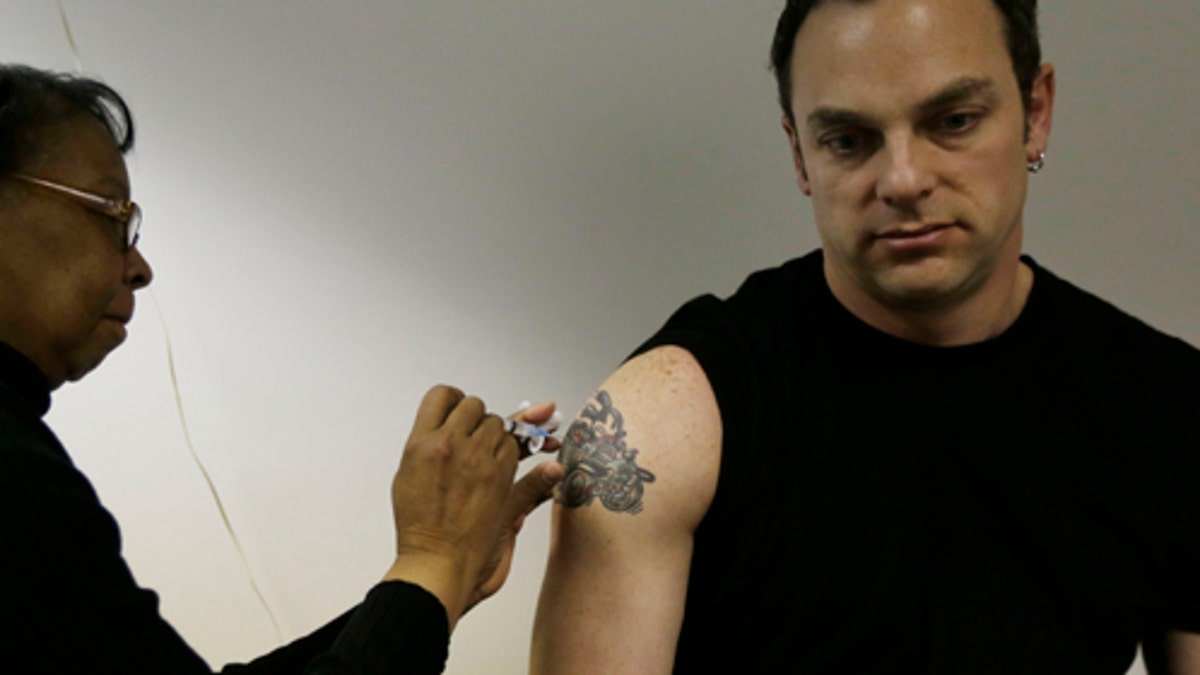
Pam Horn administers the flu vaccine to employee Michael Karolitzky at Philly Flu Shots on Thursday, Jan. 10, 2013, in Philadelphia. (AP Photo/Matt Rourke) (The Associated Press2013)
Washington – Despite shortages across the country, there are still clinics offering the flu vaccine...although it may take some searching.
Federal health officials said Friday that there is still some flu vaccine available and it's not too late to benefit from it. But people may have to call around to find a clinic with shots still on the shelf, or wait a few days for a new shipment.
"We're hearing of spot shortages," said Dr. Thomas Frieden, director of the Centers for Disease Control and Prevention.
Colorado offers an example. Kaiser Permanente, which has 535,000 members in the state, stopped giving flu shots this week. But it expected to resume vaccinations when new shipments arrive, expected this weekend.
The nation's largest manufacturer, Sanofi Pasteur, said Friday that it still has supplies of two specialty vaccines, a high-dose shot for seniors, and an under-the-skin shot for certain adults, available for immediate shipment. But it also is working to eke out a limited supply of its traditional shots — some doses that it initially hadn't packaged into syringes, said spokesman Michael Szumera. They should be available late this month.
Eduardo Azziz-Baumgartner, a medical epidemiologist with the Influenza Division of the Centers for Disease Control, told Fox News Latino that the CDC is redoubling efforts to reach out to Latino families, which tend to be more reluctant than other ethnic groups to seek preventive measures. While statistics are not yet available for this year, during the last flu season only 39 percent of Latino adults received the flu shot, compared to 49 percent of non-Hispanic whites.
“Hispanics have less access to medical care and they tend to believe that they don’t need to get vaccinated,” he said. For reasons including cultural background, “it is usually challenging to have them understand the benefits of getting vaccinated,” he said.
According to Azziz, the strategy that works is warning parents of the risks to their loved ones. “A lot of Latinos respond to an appeal to protect their families,” he said. “So we tell them that getting the flu shot is actually a way of protecting their children” and other people at high risk such as pregnant women, adults 65 and older and people with asthma or diabetes.
The Associated Press contributed to this report.
Follow us on twitter.com/foxnewslatino
Like us at facebook.com/foxnewslatino
